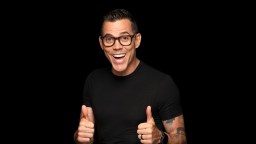Ryan Holiday, the New York Times bestselling author of Stillness Is the Key and modern Stoic philosopher, has carved a unique path in the overpopulated realm of self-improvement by utilizing ancient wisdom. It may seem like an odd career combination, but his journey from marketing executive to philosophical guide offers insights into the power of perception, the pitfalls of ego, and the importance of focusing on action rather than identity.
Beyond labels
“I’ve always hated the question, ‘What do you do?'” Holiday admits. This aversion stems from his own career transitions and a deeper philosophy about the danger of overly identifying with our professional roles. He describes moving from the advertising world, where he felt out of place among older executives in suits and ties, to becoming an author and eventually opening a bookstore.
“I’m much less interested in being seen as a writer, and I’m much more interested in writing,” he explains. This distinction between being and doing is central to Holiday’s approach to life and work. He argues that when we pick labels, we’re limiting ourselves. “If you’re like, ‘I write Westerns,’ what if you don’t like Westerns anymore?”
By focusing on the action of writing as opposed to the identity of being a writer, Holiday, 37, believes we can remain more adaptable and true to ourselves.
Embracing obstacles
Reflecting on the decade since writing motivational The Obstacle Is the Way (which has been used to inspire respected sports teams such as the Seattle Seahawks), the Californian author recounts a series of personal and global challenges he’s faced. From natural disasters affecting his home to personal setbacks and the global pandemic, he’s come to view these obstacles as opportunities for growth.
“It’s not awesome that this happened,” he admits. “But a lot of times it’s just not being destroyed by it. And the blessing is what you take out of going through some shit and not being destroyed by it.” This resilience, Holiday suggests, is the true measure of personal growth.
The power of perception
Drawing from Stoic philosophy, Holiday emphasizes the power of perception in shaping our experiences. “It’s not things that upset us, it’s our opinion about things,” he explains. “Perception is not reality. It’s not what’s happening. It’s what you see, what you tell yourself about that reality.”
He encourages everyone to use perception as a tool for growth. “If you’re going to use perception, we should use it to perceive the things that give us agency, the things that give us hope, things that give us inspiration, things that give us options,” he says.
Going with the flow
Holiday draws on Stoicism to offer a simple yet profound analogy: “An athlete’s job is to catch the ball and throw it back, not to label throws as good or bad.” This approach emphasizes focusing on action rather than judgment, fostering a flow state in facing life’s challenges.
He explains, “If you get comfortable in the rhythm of catching and throwing back, that’s what you’re supposed to be doing. There’s no good or bad—just catch and throw back.” This philosophy promotes personal responsibility and finding meaning through adversity, rather than seeking an easy path or external validation.
We interviewed Ryan Holiday for Question Your Perception Box, a Big Think interview series created in partnership with Unlikely Collaborators. As a creative non-profit organization, they’re on a mission to help people challenge their perceptions and expand their thinking. Often that growth can start with just a single unlikely question that makes you rethink your convictions and adjust your vantage point. Watch Holiday’s full interview above, and visit Perception Box to see more in this series.
RYAN HOLIDAY: Who would you be if you dropped all your identities?
I've always hated the question: What do you do? I try not to go around seeing myself really as anything. I'm this, I'm that—when you pick these labels, what you're essentially doing is limiting.
I am much less interested in being seen as a writer, and I'm much more interested in writing. Now, when people ask me what I do, I just say I have a bookstore, and they're usually, oh, that's cool. And then they don't ask me any more questions about it.
Have you ever felt you were living according to someone else's standards or values? In what way?
You know, when I look back, especially more my 20s, I would go to this sort of conference every year, this advertising conference, and most of the people were in suits and ties. This wasn't really what I wanted to do. And I remember at some point thinking, how many years can I keep going to this and not eventually put on a suit and tie? Like, it's hard to swim upstream for super long.
I made the leap and left. I wrote my first book, and then I moved to New York and suddenly I'm around a different scene of people with their own uniform and their own priorities. I think as I've gotten older, I just try to be busy doing the verb instead of thinking about, talking about the nouns, because the more you're in it, you're solving for X, Y, and Z and the more you're out of it, you're copying, imitating, comparing.
And I find that that's both conducive to like mental health, but also quality of work.
Where has your ego taken a hit in a way that ultimately served you?
I'm not sure ego ever serves us. So anything that humbles us is usually for the best. I have it tattooed on my arm here: Ego is the enemy. So we all tell ourselves a story about who we are and how we got there, and that story usually gives ourselves a lot of credit. Pats ourselves on the back, points out how awesome we are.
And as my books have sold well, and you sort of develop a fan base or following or platform, you have lots of things that confirm the ego or puff up the ego, and this feels good, but it also has the process of the effect of obscuring or inflating or detaching us from reality.
So I always kind of welcome those humbling things, the things that sort of puncture the ego. I always find that super, super helpful.
Have you ever gone through something upsetting or painful that you later viewed as a blessing?
I remember in the middle of the pandemic as we were in the process of opening this bookstore which we dumped basically our life savings in and so much time, it's just sitting there empty and you have no idea where it's going to go, what's going to happen.
And I wrote this little note to myself. I said, 2020: Will it make you a better person or a worse person? When these things happen to us, your mind wants to go to: who's to blame? How unfair it is, what this is going to cost you, what it's gonna take from you, how easily it could have been avoided, to all these things that do not change what happened and definitely don't move you forward in any way.
And so the perspective shift is like, okay, the wheels are spinning. How do I send power to where they're gonna get traction so then I can move forward?
It's not awesome that this happened, but a lot of times it's just not being destroyed by it. And the blessing is what you take out of going through some shit and not being destroyed by it. You go, oh, I can go through stuff. That's how I think about it.
What is your most consistent and greatest hope?
I mean, I think like all parents, you just hope your kids turn out okay. You hope not so much that they're successful or make a lot of money. I guess you just hope that they're happy, that they make it, that you were what they needed.
It doesn't really matter how these other things turn out. If you get all the other things you want or if world events go this way or that way, it doesn't work out for these people, if it doesn't work out here, none of it really matters.






